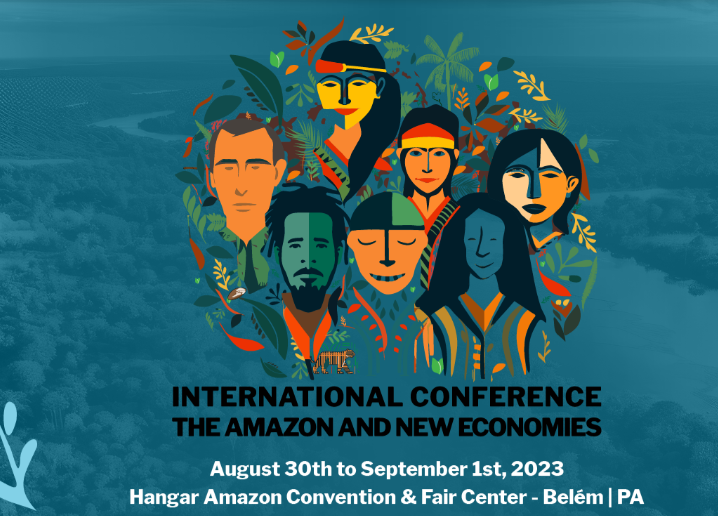Former UN Secretary-General Ban Ki-moon will be the key speaker at the Amazon and New Economies International Conference
23/06/23
Ban Ki-moon’s legacy includes the creation of the Sustainable Development Goals (SDGs), the signing of the Paris Agreement on Climate Change and the Minamata Convention on Mercury.
One of the largest global leaders in the defense of sustainable development and environmental protection, Ban Ki-moon, confirms his presence as a key speaker at the Amazon and New Economies International Conference. The meeting will be held in Belém (PA), from August 30 to September 1, by the Brazilian Mining Association (IBRAM), in partnership with the government of the state of Pará.
Moon is one of the world’s leading advocates for sustainable development and environmental protection. During his 10 years as Secretary-General of the United Nations (UN), he dedicated himself to establishing international agreements that would guide the future of the planet. His legacy includes the creation of the Sustainable Development Goals (SDGs), the signing of the Paris Agreement on Climate Change and the Minamata Convention on Mercury.
Jungmann: Ban Ki-moon’s knowledge is an important contribution to finding solutions for the Amazon
These three examples of international agreements are crucial to guide the future of one of the most important regions on the planet: the Amazon. The region is one of the most biodiverse in the world and plays a key role in regulating the global climate. “Ban Ki-moon’s presence at the conference is recognition of the importance of this debate for the future of the planet. The experience, knowledge and legacy of Ban Ki-moon at the head of the UN is fantastic. Even more so if we analyze them from the point of view of seeking solutions for the long-term sustainable development of the most important region on the planet, which is the Amazon,” says Raul Jungmann, president of IBRAM.
The international conference aims to discuss the sustainable development of the Amazon region and the opportunities that arise with the transition to a low-carbon economy. It will bring together business leaders, government officials, environmental experts and civil society representatives to discuss best practices for the economic and social development of the Amazon. With Ban Ki-moon attending, the conference gains even more relevance and visibility. His experience and knowledge will be key to discussing the challenges and opportunities of a region so important to the planet.
Mining plays a key role in the sustainable development of the Amazon. The region has potential for strategic minerals for the high-tech industry and mining could be an important source of employment and income for local communities. However, it is important that mining is carried out responsibly and sustainably, respecting the rights of indigenous peoples and environmental laws.
The Amazon and New Economies International Conference will be a unique opportunity to discuss these challenges and seek innovative and sustainable solutions for the development of the region. IBRAM is committed to promoting debate around these issues and contributing to the sustainable development of the Amazon. Ban Ki-moon’s presence at the conference is recognition of the importance of this debate for the future of the planet.

Find out more about the SDGs, the Minamata Convention and the Paris Agreement
The SDGs cover all aspects of life and are a global action plan to end poverty, protect the planet and ensure prosperity for all. The Paris Agreement is a reference in the global mobilization against climate risks, listing targets aimed at limiting the increase in planetary temperature and guiding the transition to a low-carbon economy. The Minamata Convention on Mercury provides controls and reductions in a range of products, processes and industries where mercury is used, released or emitted.
These three examples – SDGs, the Paris Agreement and the Minamata Convention – relate to the modern mining industry. Mining in Brazil works to ensure that its actions respect all these global agreements. Furthermore, the sector supplies minerals that are strategic for technological innovation and the development of equipment to improve people’s quality of life, combat climate risks, and improve means of preserving, conserving, and restoring the environment.
 Back
Back 





 24/01/25
24/01/25 





